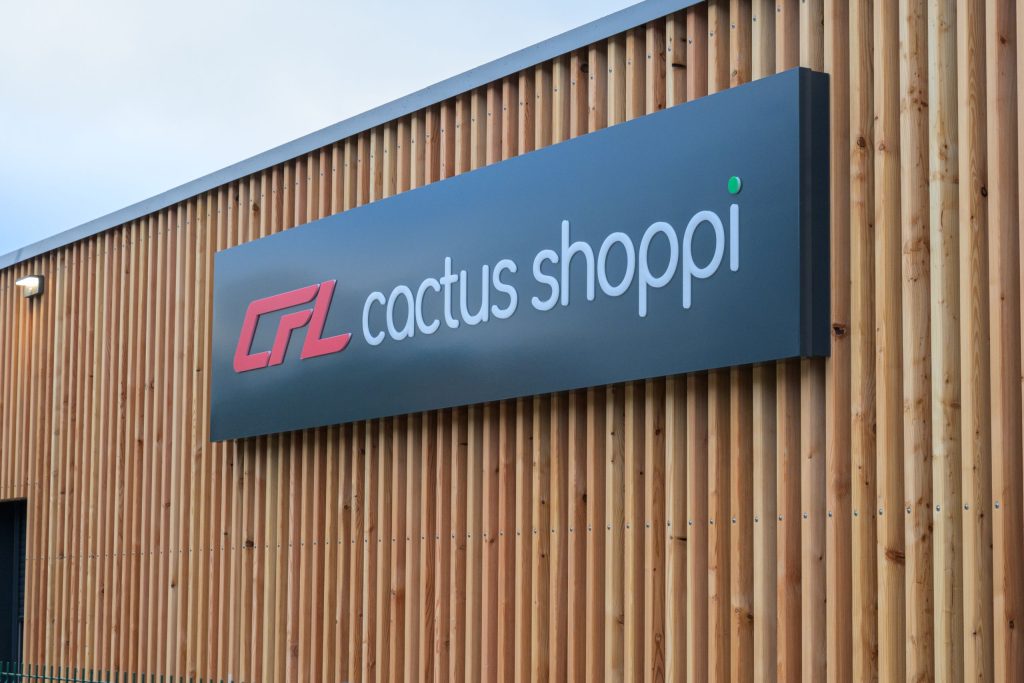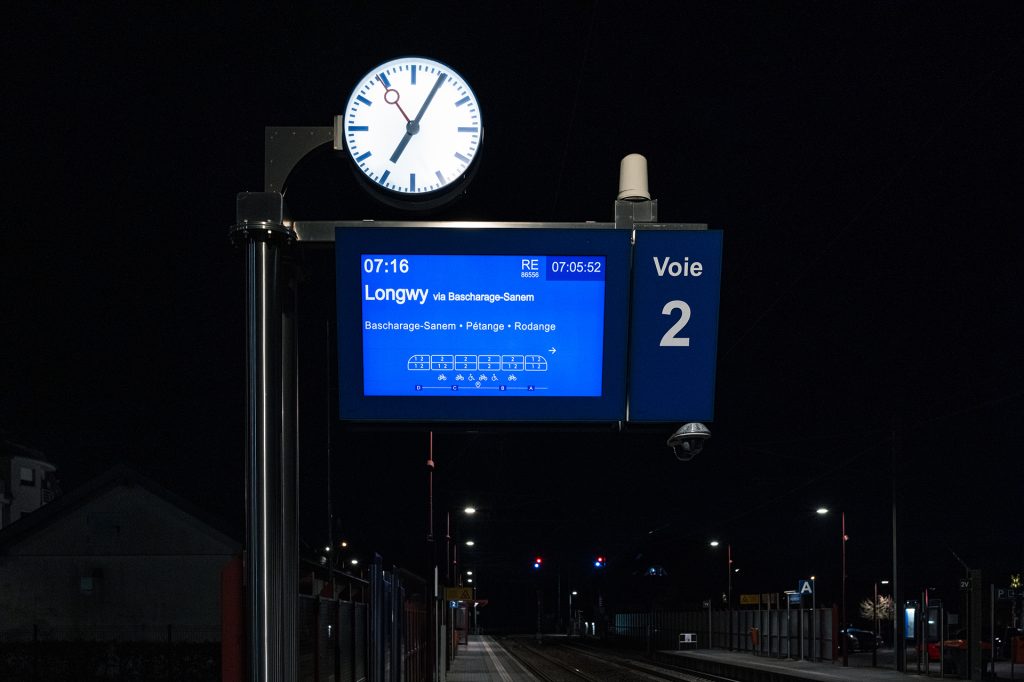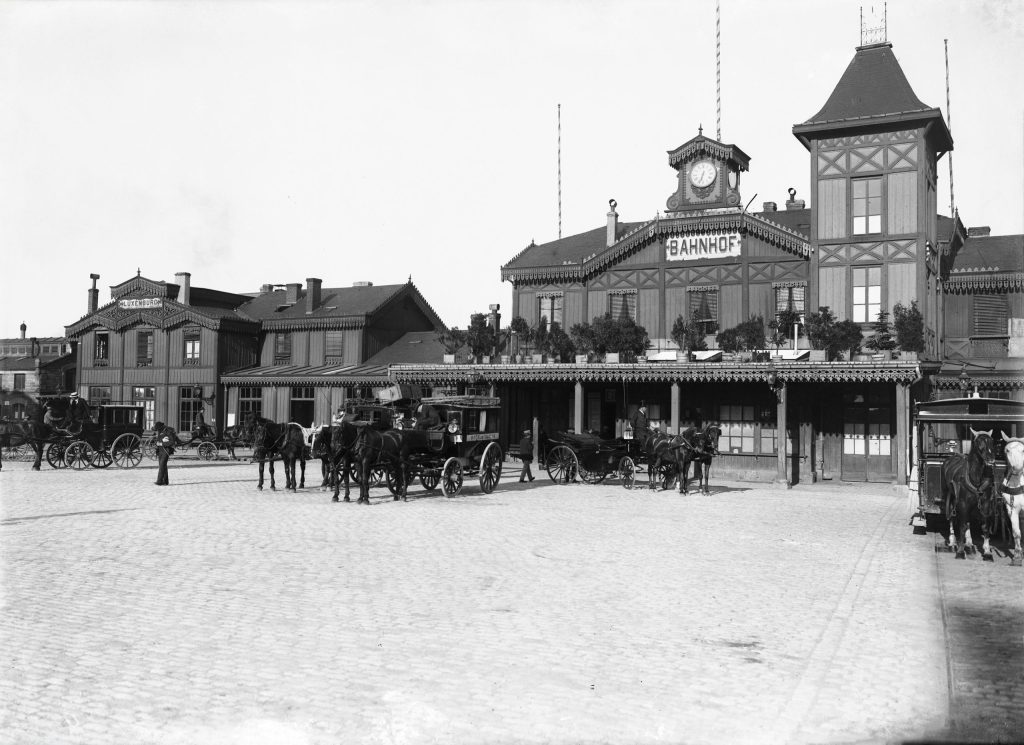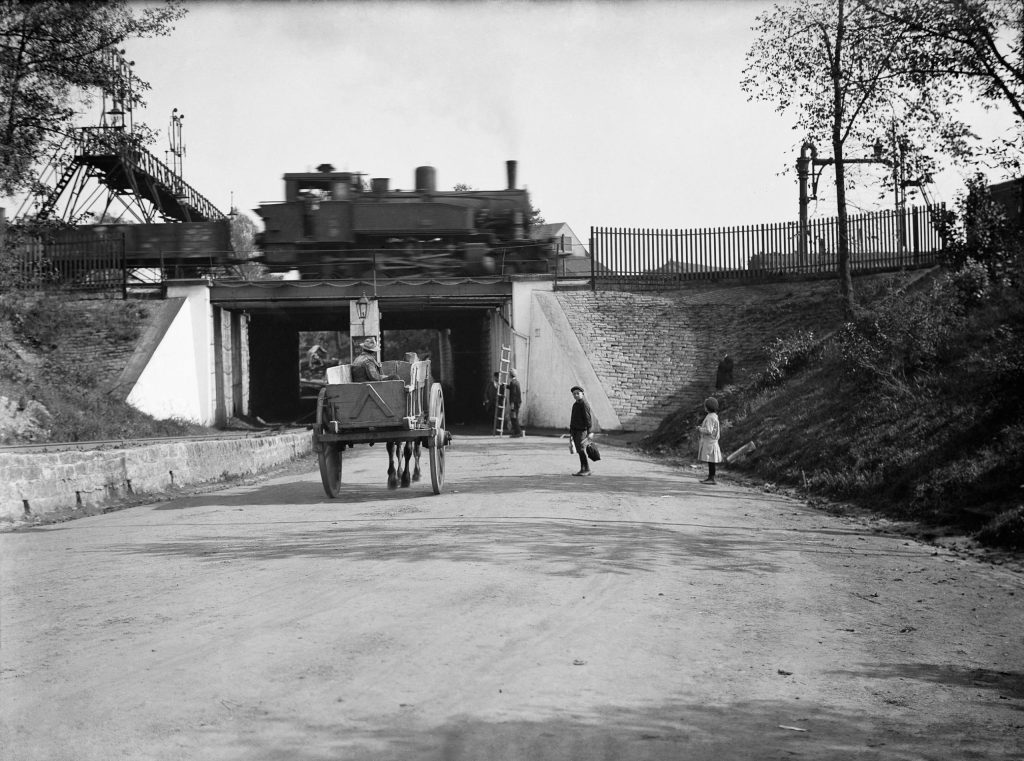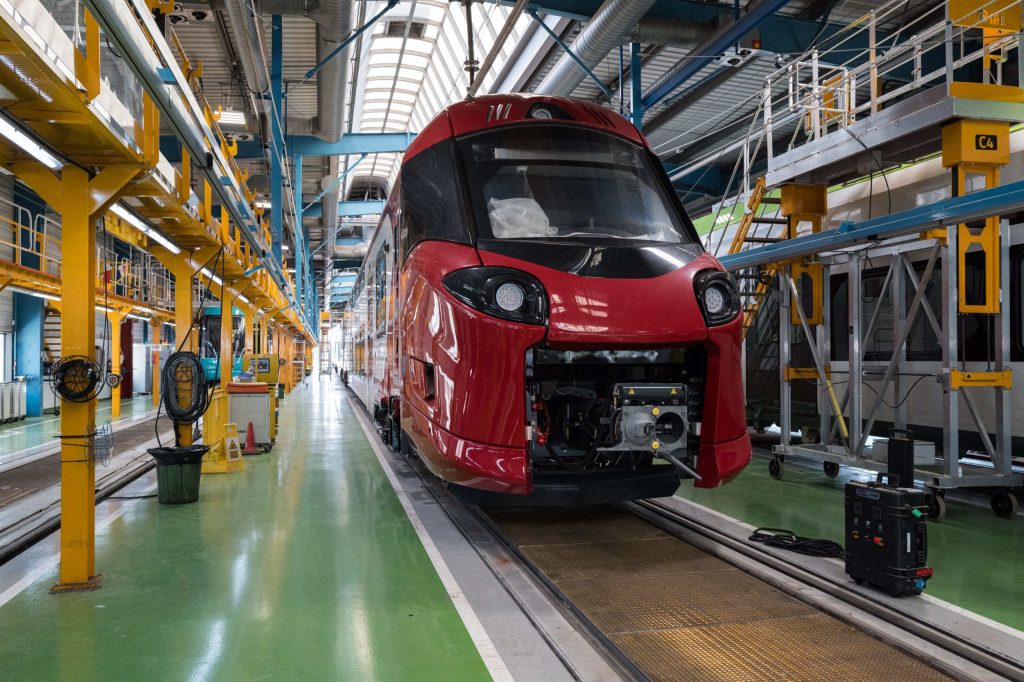
CFL cactus shoppi: “Meeting the needs of our customers by being as close to them as possible.”
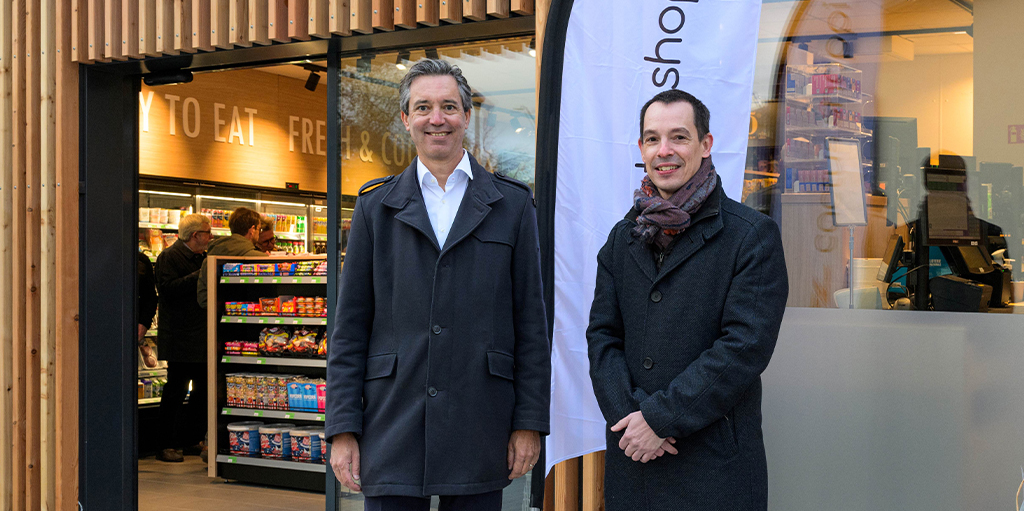
With its first three shops, the ‘Le Wagon’ space and already 32 Snack O’ Quai vending machines, CFL cactus shoppi has made its mark at the heart of station life. In 2026, the brand will continue to grow with a focus on quality, short supply chains for ultra-fresh products and additional services. We take stock and look ahead with Alain Blau (Chairman of the Board of Directors) and Jean-Paul Leesch (COO of Cactus Shoppi).
How would you sum up 2025 for CFL cactus shoppi?
Alain Blau (A.B.): First and foremost, we are fortunate to be able to count on an already large customer base at Luxembourg Station, which demonstrates the relevance of the CFL cactus shoppi concept. Thank you to everyone for their trust and loyalty every day. Two years after the opening of our flagship store at Luxembourg Station and the installation of Snack O’ Quai vending machines on the platforms of many stops and stations, we continued the development plan for our joint venture with three openings in 2025.
With ‘Le Wagon’ at Luxembourg Station and two shops in Mersch and Bettembourg, we are setting further milestones in line with our promise. The demand for local retail outlets is one of the expectations expressed by our customers in the satisfaction surveys we conduct.
Jean-Paul Leesch (J-P. L.): Our objective remains to offer a high-quality, local experience, combining services, convenience and friendliness in railway stations across the country. In 2025, we continued to refine the operations of our young joint venture, founded at the end of 2022, with a particular focus on recruiting new employees, who are essential to providing our customers with the best possible service every day. In one year, the CFL cactus shoppi team has more than doubled, growing from around 20 to more than 50 employees today.
‘Shopping habits are not limited to convenience, quite the contrary.’
Alain Blau, Chairman of the Board of Directors, CFL cactus shoppi
On 25 September, Le Wagon opened its doors at Luxembourg Central Station. How does it fit into the range of services offered by CFL cactus shoppi?
J-P. L.: We designed Le Wagon to be a real hub of activity in the heart of the country’s main station. We created a barista bar, a new dining area with around 40 seats, offering food and drink for three different times of day: breakfast, lunch and late afternoon. We are also considering the possibility of privatising the venue in the evening after 8 p.m. for events.
A.B.: The dynamic of Le Wagon is part of the CFL’s desire to think about the ‘stations of tomorrow’ by imagining new services to better meet the needs of our customers. More than ever, stations are becoming ‘village squares’, living spaces that play an important role in bringing life and value to their neighbourhoods. The opening of Le Wagon is part of this approach. We have also incorporated a service area into Le Wagon, an additional shop where you can find a POST office, newspapers and travel products.
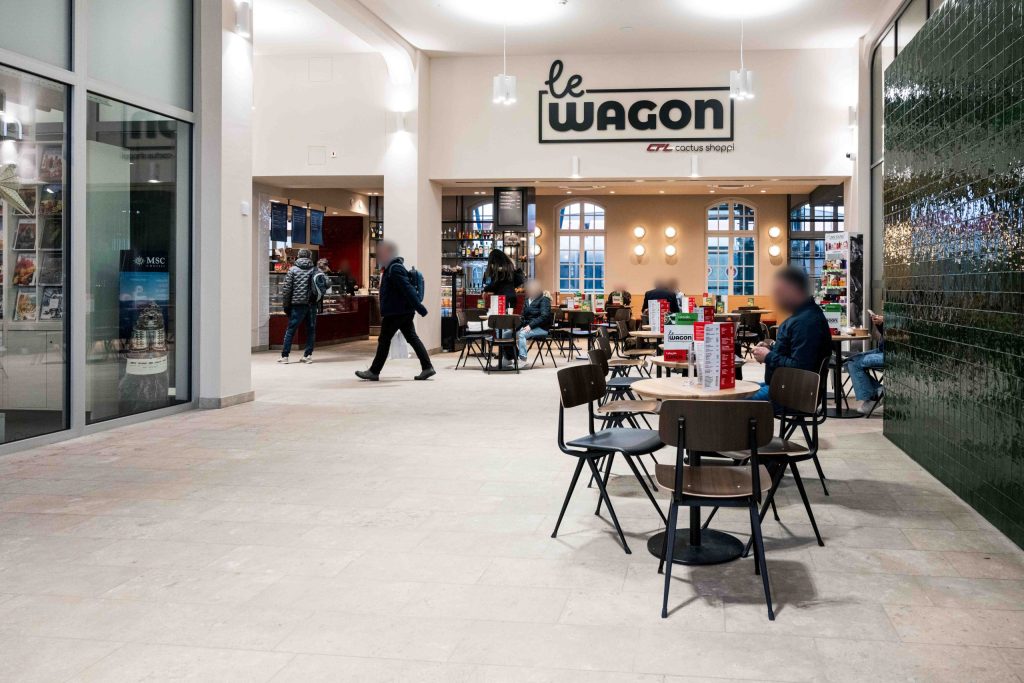

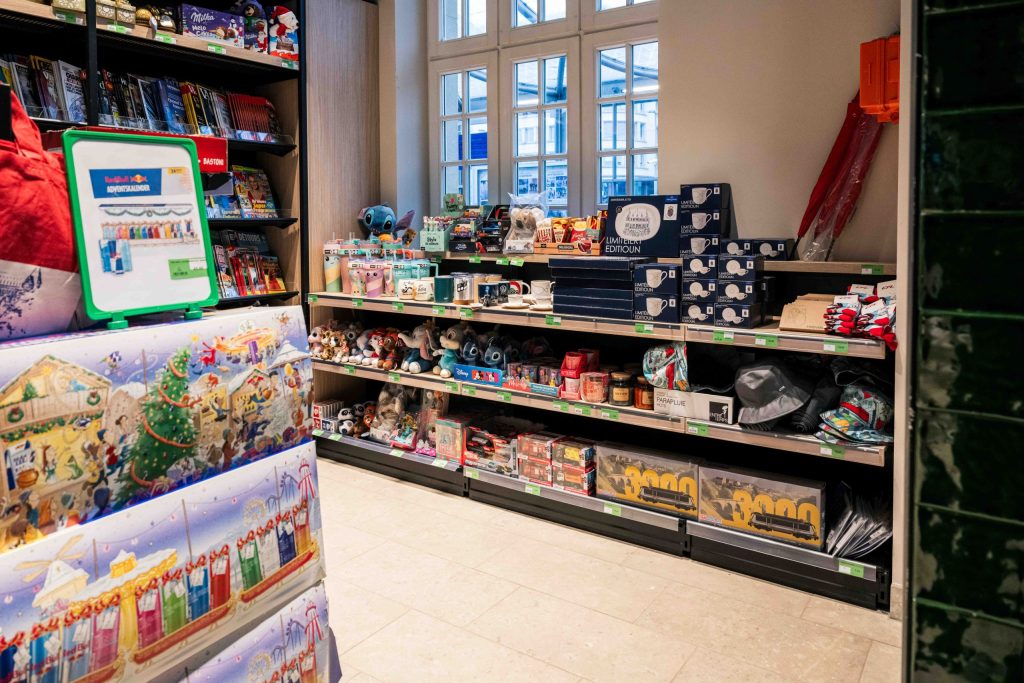
What is your customer profile?
J-P. L.: We see three main profiles: travellers looking for high-quality and fast service; lunchtime customers, who are often regulars; and local residents, who come to us for quick meals, especially on Sunday afternoons. Each site also has its own customer profile. We respond to this with a range of products based on a common foundation, which we adapt to each location. At Luxembourg Station, we cater to a diverse clientele from Luxembourg and the Greater Region, while the Mersch location has a large student clientele due to the nearby schools.
A.B.: We bring the CFL cactus shoppi concept to life based on actual demand and purchasing habits, which are not limited to convenience shopping – quite the contrary. Many of our customers make purchases that will be consumed within minutes. We therefore need to maintain a wide variety of ultra-fresh products that are available at all times in order to meet this demand.
The most recent opening, on 24 October 2025, was at Bettembourg station. This shop is designed using a modular concept. Can you tell us more about it?
A.B.: Yes, the Bettembourg project was designed in an innovative way, as the 78 m² shop is built using modular containers. This approach allows us to respond more quickly to demand while remaining flexible and, above all, limiting the resources required to design a shop. This formula could inspire other future projects by CFL cactus shoppi.
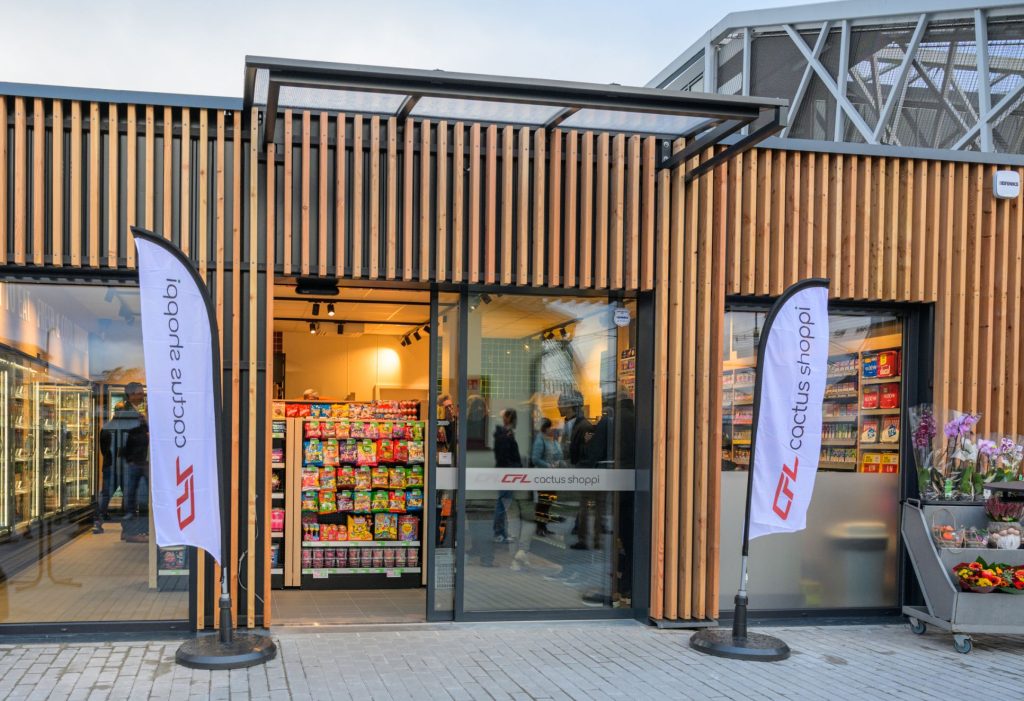
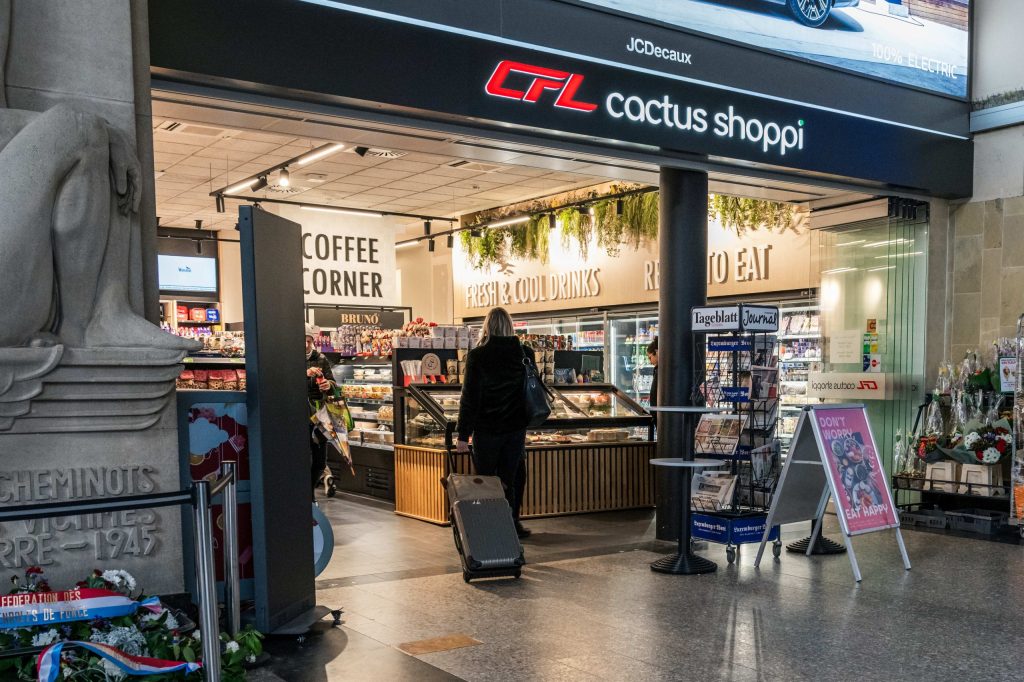
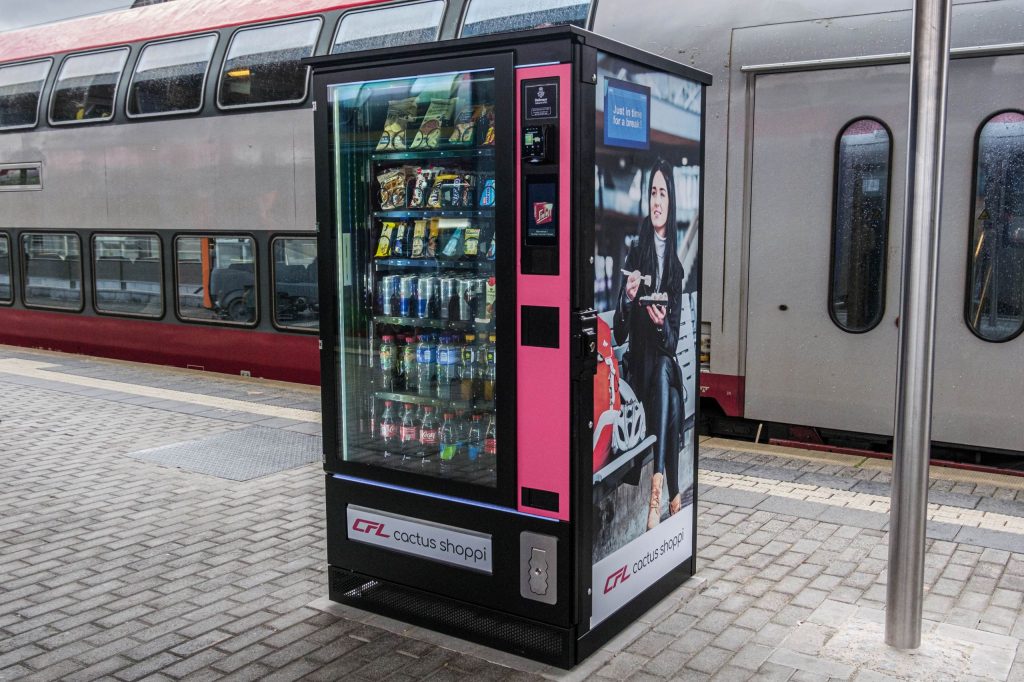
How is CFL cactus shoppi’s ‘food to go’ offering designed to meet the needs of customers?
J-P. L.: As an joint-venture between our two groups, CFL cactus shoppi benefits from the expertise of both parties, while enjoying the autonomy to develop its own offering. In concrete terms, we offer high-quality food that is affordable for all budgets and gives priority to local producers. We are currently the only ultra-local retailer offering Schnékert Traiteur products, Cocottes products and Eat Happy sushi. This also allows us to reach a population of all ages, whether they are passing by to make a purchase in one of our shops or want to eat at Le Wagon. We have noticed that we sell as many Cocottes products as Schnékert Traiteur products.
When it comes to ultra-fresh products, we are fully committed to local products and local preparations with Schnékert Traiteur in Windhof and Cocottes in Grass. I am also thinking of our partners such as the bakers Jos & Jean-Marie in Mertzig, Luxlait and its production in Bissen, Pains & Tradition in Hautcharage and Grosbusch in Ellange.

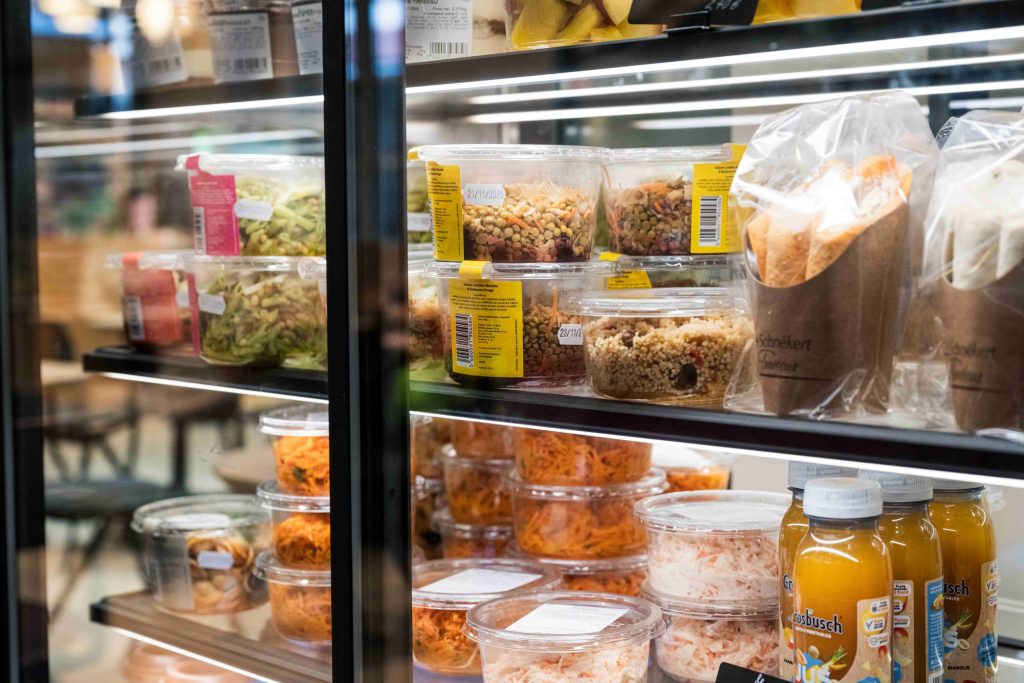

Opening hours are also tailored to each location…
J-P. L.: Indeed, our common goal is to match the flow of travellers specific to each site as well as the needs of local customers. In Mersch, for example, we have installed three vending machines (hot and cold drinks and impulse products) to extend access to our offering outside of normal opening hours.
‘The key to success is our shared vision of service quality and the offering we want to provide in stations. ‘
Jean-Paul Leesch, COO of Cactus Shoppi).
What stands out for you about the collaboration between CFL and Cactus?
A.B.: CFL cactus shoppi is yet another example of how important it is for the CFL to maintain dialogue with their customers and respond to their needs in a practical way. The origin of the local retail brand in stations dates back to a survey conducted in 2020 among our customers, which identified their needs in terms of food to go, local food shopping and additional services.
Since the end of 2022, we have been running CFL cactus shoppi with an entrepreneurial spirit and a focus on continuous improvement. One example is the changes made to our flagship store alongside the opening of Le Wagon, so that the two spaces complement each other and we can adapt to our customers’ shopping habits.
J-P. L.: The key to success is our shared vision of service quality and the offering we want to provide in stations. The CFL bring detailed knowledge of the locations and their customers, while Cactus contributes its expertise in local grocery stores and point-of-sale management. It is a smooth collaboration, based on mutual respect and the desire to offer a consistent and modern customer experience.
What are the prospects for 2026?
A.B. We will use 2026 to optimise our operations and benefit from the first few months of hindsight on our recent openings. We are approaching next year on a positive note, with a meaningful collaboration based on complementary experience and expertise and, above all, shared values: sustainable development, the local roots of our two groups and, of course, customer service.
It is in this spirit that we will prepare for the opening of a CFL cactus shoppi in Diekirch in the second quarter of 2026 and continue to install Snack O’ Quai vending machines, particularly in high-traffic areas. And like any entrepreneur, if other opportunities arise, we will be attentive and ready to explore them.
CFL cactus shoppi in figures:
• 51 employees
• 30,000 customers per day
• + 550m² of total retail space
• 32 ‘Snack O' Quai’ vending machines in 22 stations
• 500 coffees served daily, with a medium-term target of 750
